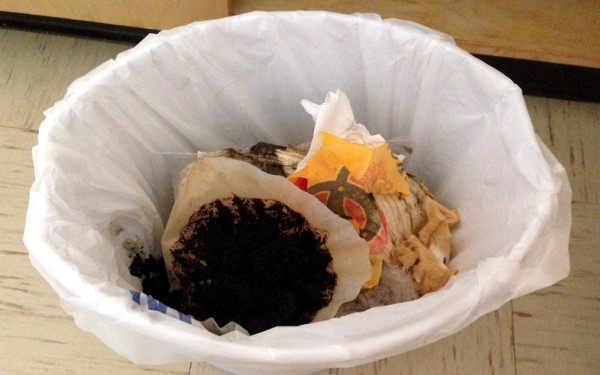Have you noticed how much waste is generated in the kitchen when making a meal? So much water, packaging, and biodegradable material is used and discarded each day because of home cooking. However, there are simple ways that you can reduce the amount of waste you generate at home while providing delicious, healthy meals for you and your family. The following list is an example of 5 ways you can generate less waste in your kitchen:
1. Use all the food
Say for instance you buy a bunch of raw beets from the produce section. If you buy the kind with long stalks and greens, but only use the beet itself, you are wasting half the plant and missing out on a majority of its nutrients. Beets by themselves have lots of vitamins and minerals; but, the greens are loaded with vitamin A, B, C, E, and K and contain plenty of fiber, calcium, magnesium, potassium, iron, and amino acids. The same principle holds for the edible skins of fruits and vegetables, such as apples, peaches, cucumbers, and potatoes. Skins typically contain nutrients that are not found in abundance in the flesh. The way I look at it, if the skin is relatively easy to digest, nature intended it to be consumed as part of a nutritional package. (Note that not all parts of every plant are consumable. Be sure to do your research before divulging…just in case.)
2. Be like stir-fry chefs (use less cookware)
If you are making a dish where all the individual items will end up in the same bowl or plate, why not just cook them all together at the same time? Maybe rice needs its own pot and shrimp takes less time to cook than onions do to sauté; but if you are pressed for time and do not want to clean up too many dirty dishes, why not consolidate as many foods into one pan as possible? And do you really need a separate spoon to stir each pot? Perhaps just one stirring utensil will do the trick. Or if you are making salsa, why prepare and mix it in one bowl and then transfer it to another container for storage? Why not just prepare and mix the ingredients in the container that is going into your fridge anyways? Using less cookware will reduce the amount of time, water, and dish soap needed to clean. This will, in turn, spare precious time, save money, conserve water, and reduce the amount of soap in the wastewater stream.
3. Compost any food you do not use
Composting is one of the best things you can do in your kitchen after all efforts to utilize every morsel of food are exhausted. Composting reduces the amount of biodegradable waste going to the landfill, which makes the landfill smaller. It also takes advantage of the energy left in scrap food that would otherwise be misspent. Biodegradable waste makes up a considerable percentage of landfills; and biodegradable waste does not degrade resourcefully in a landfill. So, in order to send less biodegradable waste to the landfill and put it somewhere it can be more productive, collect food scraps and create a composting system or send it to a local composting facility. (What?! Your area does not have a local composting facility? Tell me where you live, and I will find solutions for you.)
4. Reuse your resealable plastic bags
Plastic bags can come in handy to pack lunches, picnics, road trips, hikes, and store leftovers. However, they are not the most environmentally-friendly storage device because they are quickly and easily discarded when their use is no longer needed. You can not be perfect all the time, but if you are using resealable plastic bags in your kitchen, make a point to reuse them. Wash them in the sink with dish soap and water, just like you do any dish, and turn them inside out to dry. This will not only reduce unnecessary waste, but it will also save you money on your grocery store expenses. If you usually marinate raw meat in plastic bags, consider using plastic containers that are dishwasher safe so that you can reduce waste without compromising your risk of exposure to harmful bacteria.
5. Freeze your food
When produce is about to go bad and you know you are not going to use it up that day, stick it in the freezer so that it does not spoil. This works great for berries that ripen faster than you can eat them; spinach and other greens that sit too long in the fridge; bananas that turn brown; bread that is on the verge of growing mold; and even tomatoes that threaten to rot on your counter. By freezing these items, you have avoided throwing them away or composting them unnecessarily. (Remember: The first line of defense against wasting food is consumption!) Since these food items are preserved, you can use them later for smoothies, sauces, and fillers for a plethora of meals. Now, you may have read some article that says frozen food is not as good for you as fresh food. The research is inconclusive at best, so disregard this hesitation. ‘Tis better to freeze the food and risk receiving less nutrients whence it was fresh than to waste it completely.
SHARE
Do you have more ideas? Please share them below! The more brainstorming we do together, the more we can improve how we live and thus improve the quality of life for everyone.

